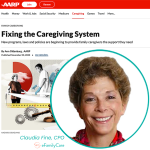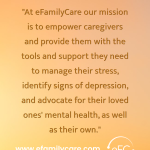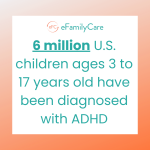Written by Carol Bradley Bursack
Real-Time Advice Could Have Been a Game-Changer for These Dementia Caregivers
“Mom continually accused me of stealing her money to travel,” Vicki Tapia, author of Somebody Stole My Iron, says. “Nothing I could say or do convinced her otherwise, leaving me both frustrated and upset.”
After her mother was diagnosed with Alzheimer’s disease, followed closely by her father with Parkinson’s disease-related dementia, Tapia struggled to find practical, helpful information to light her way.
“It would have saved me much distress and been very helpful had there been an experienced guide I could have asked for advice,” she says.
Family caregiving a stew of emotions
While family caregiving provides opportunities for gratifying closeness and even joy, it’s often isolating and frequently scary, as well.
The Alzheimer’s Association estimates that more than 16 million Americans provide unpaid care for people who live with Alzheimer’s and other types of dementia. The organization goes on to say that these caregivers provide 18.5 billion hours of care valued at $234 B. Few of these caregivers have any background in dementia care, or even general aging care for that matter.
Caregivers of all types can be faced with seemingly impossible decisions to make on the fly, or just baffling situations, such as the emotionally devastating accusations of stealing that can be a common experience for dementia caregivers.
Barry J. Jacobs, PsyD, a clinical psychologist, family therapist and healthcare consultant was a caregiver first for his father who had cancer, and later for his mother as she declined from kidney disease and vascular dementia. Dr. Jacobs specializes in helping family caregivers, yet even he felt the need for objective advice.
“In the heat of the moment when a loved one is having an acute problem, family caregivers sometimes panic,” Jacobs tells us. “They don’t want to make the wrong decision and harm their loved one and are consequently paralyzed about making any decision. They need sound, calm guidance in those moments from someone who is objective and wise.”
Family caregivers often feel that they simply bounce between one caregiving crisis to another. If help with finding an appropriate resource – now – isn’t the problem, then the behavior of their loved one who is living with dementia is.
“We become so immersed in high-stakes caregiving situations, we can no longer see them clearly,” Jacobs says. “Others who are emotionally more distant can point out to us what we need to see and the actions we need to take.”
Even getting a diagnosis can be a challenge
Getting a family member or friend to see a doctor for a possible dementia diagnosis can be an overwhelming challenge, partially because of the stigma that surrounds any mental limitation. Therefore, denial steps in, which in turn makes many older adults refuse to see a doctor. An experienced nurse or social worker has worked with this problem repeatedly and could arm a family caregiver with tools for approaching their reluctant loved one.
Seeing the family doctor about troubling cognitive issues is just the first step in a long journey though, and diagnosis or not, challenges still lie ahead.
“Both of my parents were diagnosed with Alzheimer’s on the same day, but seeking that diagnosis took six years from when I began to notice oddities and flaws in their logic,” Jean Lee, Author of Alzheimer’s Daughter says.
“We were sent from doctor to doctor, specialist to specialist. Ultimately it was a journal I had kept on my own, which documented events and frequencies, that gave an accurate timeline and progression for diagnosis from a geriatric specialist.”
Lee’s words illustrate how alone a family caregiver can be as they try to navigate an always hurried and sometimes confusing healthcare system.
“How wonderful it would have been if I could have accessed in real-time a medical professional who could have advised me,” she says.
Few caregivers have the background for every decision
Rarely are family members trained to make the medical or legal decisions, as well as address the ever-changing emotional situations they are required to handle. These complications are multiplied many times over for those providing care for people who live with Alzheimer’s or any other type of dementia.
Tapia being accused of stealing from her mother is such a situation. While financial elder abuse is an ugly problem worldwide, the other side of the issue is probably more common. The person who had developed dementia has memory issues and/or has become paranoid and often these go together, resulting in their feeling that that people are stealing their money or their belongings.
Since a person who is living with a brain impaired by dementia is not able to be logical, explaining and arguing will not work. Therefore, having a trained professional who can brainstorm strategies can help a caregiver learn how to respond to such accusations without causing more upset.
Caregivers with loved ones in care homes still need help
Tapia’s parents eventually moved into an appropriate care home, but her caregiving didn’t stop there.
“Each time I said goodbye for now to my parents and pushed the appropriate buttons to unlock the facility exit door, I knew I was ‘escaping’ to a life beyond. Yet, I never left alone,” Tapia tells us. “Yes, my parents stayed behind, but I was left with feeling sadness and despair for Mom and Dad’s situation, and guilt that I wasn’t giving more, doing more or being more for my parents,” she says.
“What I wouldn’t have given for a listening ear, a guide who might have soothed my fears and shone a light on my path.”








